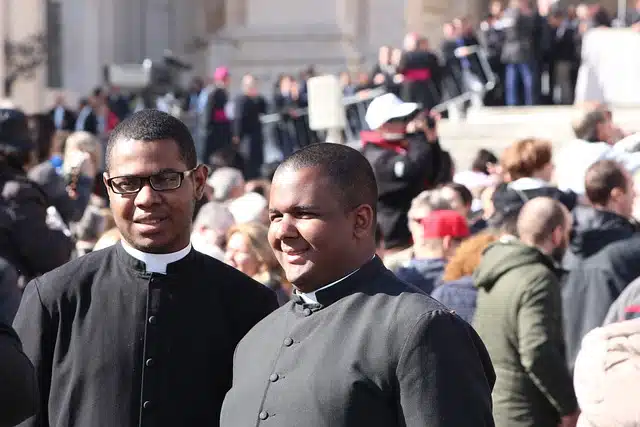
The term secular is used in the field of religion.
Lay is a term that comes from a Latin word, and is used to refer to that which is not under clerical orders . In any case, it is a concept that can refer to contradictory issues, since it serves both to refer to a Christian who is not a member of the clergy but who leads a believing life, and to talk about an institution that does not belong to a religious body. and therefore lacks creed.
The concept acquired greater importance for the Catholic Church after the Second Vatican Council held in 1959 , when the religious vocation of the layman was recognized through the sanctification of his obligations as a Christian. This assumes that the layman, despite not being a clergyman , has to exercise evangelization and carry out his daily tasks in accordance with the precepts of Jesus Christ .
Secular as a noun and adjective
As a noun, it serves to refer to a Christian who exercises his religious mission outside the clerical sphere. These are baptized subjects who belong to the Church despite not having received the sacrament of the priestly order.
Regarding its meaning as an adjective, it refers to that which is independent of any religious organization . For example: “The Argentine State is secular and, although it listens to all faiths, it does not accept the moral decrees of any religion,” “I want my children to be raised in freedom through secular education.”

A lay person is mentioned as someone who is not under clerical orders.
secularism
The ideology or political movement that defends and promotes social organization independent of religious orders is known as secularism . The notion of a secular State arose from the separation between state institutions and those belonging to the Church.
For secularists, social order must depend on freedom of conscience and not on the imposition of values or moral norms that are linked to a religion . In any case, they do not condemn the existence of religious values.
Requirements that a State must meet to be considered secular
For a State to be considered secular , it must meet a series of requirements. First of all, it respects the beliefs of those who do not believe and those who believe. The former have the right to live in a space where they do not have to respond to mandates that they do not respect; while the latter may have non-believing legislation in the legal field and one that adapts to their beliefs, within the spiritual, moral and religious framework.
In this type of organization, education must be based on equality and respect. For this, it is essential that students are not indoctrinated by any regime and have the right to choose free learning. This type of State should not finance religious institutions as happens in countries like Spain, but should only focus on public and secular education, which lacks moral principles.
Furthermore, it is required that religious symbols not be used by the State under any circumstances; thus separating government activity from all existing rites and religions.
Another consequence of a secular State is related to holidays , declared as such by the current Constitution. These should only be related to dates that are important for the territory, due to historical events or days universally declared holidays. Likewise, religious celebrations should not use any organization that depends on the State to carry them out.
Beyond the declaration
In any case, even those governments that consider themselves secular do not meet these requirements. So much so that there are many celebrations linked to the religious calendar and that even in public welfare institutions, such as hospitals and penitentiary centers, there are chapels and chaplains.
Finally, a right that every citizen has is to apostatize , abandoning the Catholic religion, however this is often denied and there is not even an official registry of apostates, despite the fact that the law requires it.
